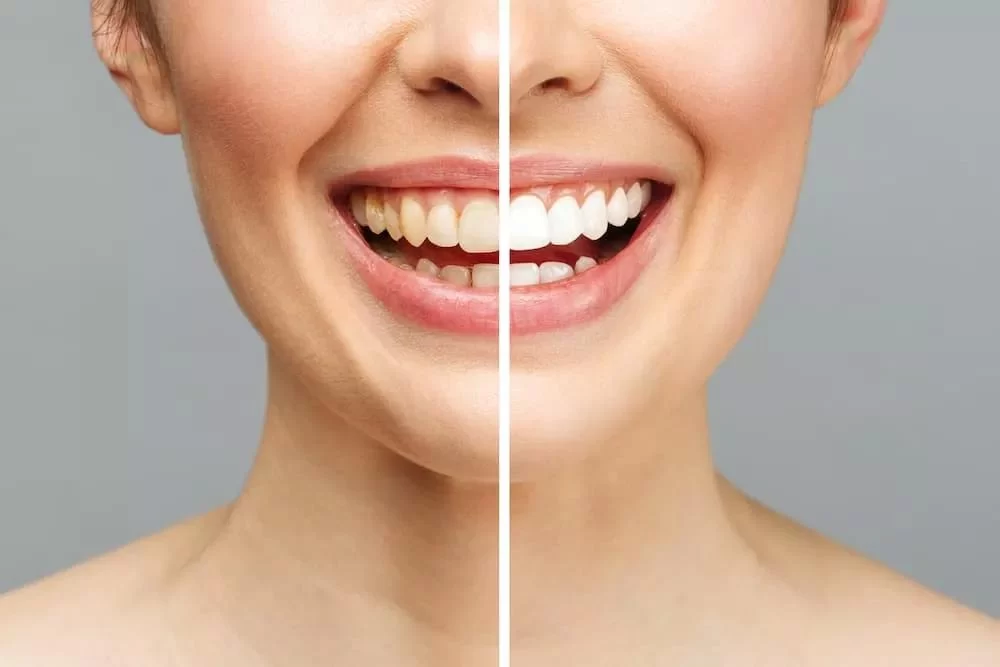
Best Treatment for Sensitive Teeth in Adults: Effective Solutions and Tips
- Understanding Sensitive Teeth
- Common Causes of Sensitive Teeth
- Best Treatment Options for Sensitive Teeth in Adults
- How to Prevent Sensitive Teeth
- When to Seek Professional Help
Understanding Sensitive Teeth
Tooth sensitivity is a common issue among adults, and it can be quite uncomfortable. It occurs when the underlying layer of your teeth, called the dentin, becomes exposed due to worn enamel or gum recession. This exposure makes your teeth more susceptible to hot, cold, sweet, or acidic foods and drinks.
While tooth sensitivity can affect anyone, it is more prevalent as people age. In fact, studies have shown that nearly 40% of adults experience some form of tooth sensitivity at some point in their lives. If you’ve been dealing with sensitive teeth, it’s important to understand the causes and explore treatment options to alleviate the discomfort.
Common Causes of Sensitive Teeth
Several factors contribute to tooth sensitivity in adults. Understanding the root cause of your sensitive teeth can help you determine the best treatment options. Some of the most common causes include:
- Enamel Erosion: The protective enamel on your teeth can wear down over time due to aggressive brushing, acidic foods, or teeth grinding.
- Gum Recession: As gums recede, they expose the sensitive roots of the teeth, making them more vulnerable to pain from hot or cold stimuli.
- Tooth Decay: Cavities or other forms of decay can expose the inner layers of your teeth, leading to increased sensitivity.
- Dental Procedures: Certain dental treatments, such as teeth whitening or fillings, can temporarily cause sensitivity.
- Bruxism (Teeth Grinding): Grinding your teeth can wear down enamel and cause discomfort, particularly in the evenings or during stressful periods.
Identifying the exact cause of your sensitive teeth is crucial in choosing the most effective treatment options for relief.
Best Treatment Options for Sensitive Teeth in Adults
If you’re suffering from sensitive teeth, there are several treatment options available to help alleviate your discomfort. Here are some of the most effective and commonly recommended treatments:
1. Use of Desensitizing Toothpaste
One of the most popular treatments for sensitive teeth is desensitizing toothpaste. These specialized formulas contain compounds that block the transmission of pain signals from the surface of your teeth to the nerve. With consistent use, desensitizing toothpaste can help reduce tooth sensitivity over time.
2. Fluoride Treatments
Fluoride treatments can strengthen enamel and reduce sensitivity. These treatments are available in the form of toothpaste, gels, or rinses and are often applied by a dentist for more immediate relief. Fluoride helps remineralize areas of the tooth that have lost calcium, improving overall tooth health.
3. Dental Sealants
For individuals with severe sensitivity, dental sealants may be an option. These protective coatings are applied to the chewing surfaces of your teeth to shield exposed dentin and prevent pain from temperature changes. Sealants are a great option for long-term relief and protection.
4. Gum Grafting
If gum recession is contributing to your sensitivity, a gum graft may be necessary. This procedure involves taking tissue from another part of your mouth and grafting it to areas where the gums have receded. This can help cover the exposed roots and alleviate discomfort.
5. Professional Treatments
In some cases, your dentist may recommend professional treatments such as root canals or bonding to address deeper causes of sensitivity, such as cavities or cracks in your teeth. These options may offer permanent solutions depending on the severity of your condition.
While these treatments can provide significant relief, it’s important to consult with a dentist to determine the best course of action based on your individual situation.
How to Prevent Sensitive Teeth
Prevention is always better than treatment. Here are a few tips to help prevent the development or worsening of sensitive teeth:
- Brush Gently: Avoid brushing your teeth too hard, as this can wear down enamel and cause gum recession. Use a soft-bristled toothbrush and brush in gentle, circular motions.
- Use a Toothpaste for Sensitive Teeth: Choose a toothpaste designed for sensitive teeth, as it can help reduce pain and protect the enamel.
- Avoid Acidic Foods: Limit your consumption of acidic foods and drinks (like citrus, soda, and wine), as they can erode enamel and contribute to sensitivity.
- Wear a Mouthguard: If you grind your teeth at night, wearing a mouthguard can help protect your teeth from excessive wear and reduce sensitivity.
- Visit Your Dentist Regularly: Regular dental checkups allow your dentist to spot early signs of issues like cavities or gum recession, which can contribute to sensitivity.
By incorporating these habits into your daily routine, you can protect your teeth and prevent future sensitivity problems.
When to Seek Professional Help
If your tooth sensitivity persists despite using desensitizing toothpaste or following at-home remedies, it may be time to consult a dentist. Persistent sensitivity could indicate a more serious underlying issue, such as cavities, gum disease, or a cracked tooth. A dentist can help diagnose the cause of your sensitivity and recommend the best treatment for your specific situation.
For expert advice or to explore treatment options tailored to your needs, visit Dentistry Toothtruth for more information on how to address sensitive teeth effectively.
Dealing with sensitive teeth can be frustrating, but with the right treatment and preventative measures, you can enjoy a more comfortable smile. Whether it’s through desensitizing toothpaste, fluoride treatments, or professional procedures, there are plenty of options available to help you manage tooth sensitivity. For personalized recommendations and care, don't hesitate to contact Dentistry Toothtruth.







 Nordberg Family Dentistry4.0 (22 review)
Nordberg Family Dentistry4.0 (22 review) Lane & Associates Family Dentistry - Raleigh Wake Forest Road4.0 (1405 review)
Lane & Associates Family Dentistry - Raleigh Wake Forest Road4.0 (1405 review) Michael E Krone & Associates5.0 (39 review)
Michael E Krone & Associates5.0 (39 review) Doc Bresler's Cavity Busters4.0 (363 review)
Doc Bresler's Cavity Busters4.0 (363 review) Silicon Valley Dental4.0 (214 review)
Silicon Valley Dental4.0 (214 review) Oakwood Dental Arts4.0 (470 review)
Oakwood Dental Arts4.0 (470 review) The Importance of Oral Health Education During Pregnancy for a Healthy Pregnancy
The Importance of Oral Health Education During Pregnancy for a Healthy Pregnancy Best Tips for Brushing Your Teeth Properly for Healthy Gums: Essential Techniques for Oral Health
Best Tips for Brushing Your Teeth Properly for Healthy Gums: Essential Techniques for Oral Health Why Skipping Dental Checkups Can Lead to Bigger Oral Health Problems
Why Skipping Dental Checkups Can Lead to Bigger Oral Health Problems Advantages of Porcelain Dental Restorations
Advantages of Porcelain Dental Restorations How Can Diabetes Cause Tooth and Gum Problems? Preventing and Managing Oral Health Issues
How Can Diabetes Cause Tooth and Gum Problems? Preventing and Managing Oral Health Issues Healthy Habits for Promoting Good Oral Health and Hygiene: Tips for a Healthy Smile
Healthy Habits for Promoting Good Oral Health and Hygiene: Tips for a Healthy Smile